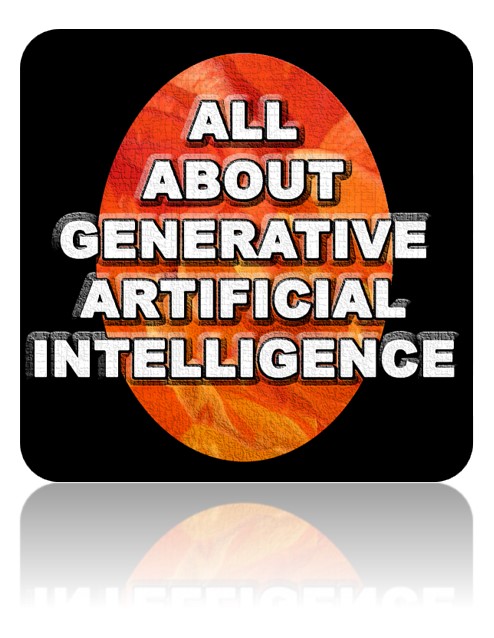Introduction To Foundation Models For AI
Articles Series: All About Generative Artificial Intelligence
Conversation With Chat GPT4 18 January 2024

F McCullough Copyright 2023 ©
Article Overview
Foundation models are large-scale AI models trained on extensive datasets, used in various applications like NLP and computer vision, while presenting challenges in bias, privacy, and interpretability.
Introduction To Foundation Models For AI
Foundation models are a recent development in the field of artificial intelligence (AI). They are large-scale models trained on massive datasets, capable of generalising across a wide range of tasks and domains. These models, like GPT (Generative Pretrained Transformer) and BERT (Bidirectional Encoder Representations from Transformers), are revolutionising how AI is applied.
Key Components Of Foundation Models
Large-Scale Training Data
Foundation models are trained on extensive datasets, often comprising diverse and wide-ranging content from the internet. This extensive training enables them to develop a broad understanding of language, concepts, and contexts.
Deep Learning & Neural Networks
At the core of foundation models lie deep learning techniques, particularly neural networks. These are complex algorithms modelled after the human brain, capable of processing and learning from vast amounts of data.
Pretraining & Fine-Tuning
Pretraining involves training the model on a large, general dataset to learn a wide range of features and patterns. Fine-tuning then adapts this model to specific tasks or datasets, enhancing its performance in particular domains.
Applications Of Foundation Models
Natural Language Processing (NLP)
Foundation models have significantly advanced NLP, enabling more fluent and context-aware language generation, translation, summarisation, and conversation.
Computer Vision
Some foundation models are also trained on image data, improving capabilities in image recognition, classification, and generation.
Decision Making & Prediction
These models can assist in decision-making processes and predictions in various fields, from finance to healthcare, by analysing patterns and trends in large datasets.
Challenges & Ethical Considerations
Bias & Fairness
Since foundation models are trained on data from the internet, they can inherit and amplify biases present in the training data. Ensuring fairness and mitigating bias is a major challenge.
Data Privacy
The vast data required for training these models often includes personal and sensitive information. Ensuring privacy and ethical use of this data is crucial.
Model Interpretability
Understanding how foundation models make decisions can be difficult due to their complexity. This lack of interpretability poses challenges in trust and reliability.
Resource Intensity
Training and running foundation models require significant computational resources, which can be costly and environmentally impactful.
Concluding Overview
Foundation models represent a significant leap in AI capabilities, offering unprecedented versatility and power. However, their responsible deployment requires careful consideration of ethical, privacy, and environmental impacts. Addressing these challenges is essential to harness the full potential of foundation models in a way that benefits society.
Key Takeaways
Foundation models are large-scale AI models trained on extensive datasets, used in various applications like NLP and computer vision, while presenting challenges in bias, privacy, and interpretability.
Conversation with Open AI’s ChatGPT4 Reviewed, Revised and Edited by F McCullough, Copyright 2023 ©
Series: All About Generative Artificial Intelligence
Other articles in the series may be found here.
Links
Agriculture
Articles
Artificial Intelligence
Business
Ecology
Education
Finance
Genomics
Goats
Health
History
Leadership
Marketing
Medicine
Museums
Photographs & Art Works
Artworks, Design & Photographs Index
Other Photographs & Art Works By F McCullough
Places To Visit
Other Museums And Places To Visit
Plants
Poetry
Research
Science & Space
Science & Space Articles & Conversations
Short Stories
Songs
Technology
Thought Of The Day
Adaptive AI is a journey, not a destination –
continuous learning is essential.
Information
Image Citations
- All About Generative Artificial Intelligence F McCullough Copyright 2023 ©
Table Of Contents
Articles
Series: All About Generative Artificial Intelligence
Introduction
To Foundation Models For AI
Key
Components Of Foundation Models
Deep Learning
& Neural Networks
Applications
Of Foundation Models
Natural
Language Processing (NLP)
Challenges
& Ethical Considerations
Series: All
About Generative Artificial Intelligence
Copyright
Keywords: AI adoption, AI applications,
AI challenges, AI ethics, AI implementation, AI innovation, AI integration, AI
models, AI readiness, AI security, AI talent development, AI technology, AI
training programs, Artificial Intelligence, Autonomous AI, Business AI
strategy, C-suite AI strategy, Collaborative AI, Corporate AI, Data governance,
Data privacy, Data processing, Ethical AI, General AI, Machine Learning,
Predictive AI, Quantum computing, Real-time AI, Responsible AI, Technological
advancement
Hashtags: #AI_adoption,
#AI_applications, #AI_challenges, #AI_ethics, #AI_implementation,
#AI_innovation, #AI_integration, #AI_models, #AI_readiness, #AI_security,
#AI_talent_development, #AI_technology, #AI_training_programs,
#Artificial_Intelligence, #Autonomous_AI, #Business_AI_strategy,
#C-suite_AI_strategy, #Collaborative_AI, #Corporate_AI, #Data_governance,
#Data_privacy, #Data_processing, #Ethical_AI, #General_AI, #Machine_Learning,
#Predictive_AI, #Quantum_computing, #Real-time_AI, #Responsible_AI, #Technological_advancement
Created: 18 January 2024
Published: 19 January 2024
Page URL: https://www.mylapshop.com/introductiontofoundationmodelsforai.htm
